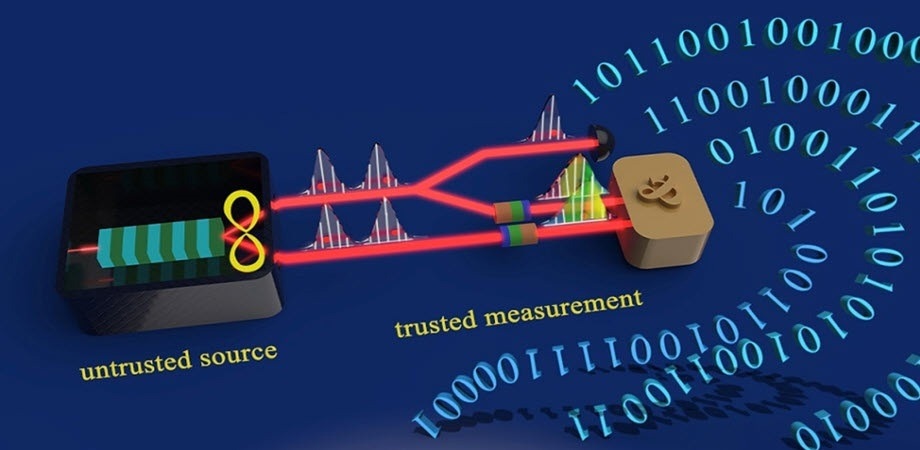Using the inherent unpredictability of quantum mechanics, quantum random number generators (QRNGs) have significant applications in quantum information processing and computation tasks.

Realization of a source-device-independent quantum random number generator secured by nonlocal dispersion cancellation. Image Credit: Ji-Ning Zhang
Practically, any imperfection or incorrect characterization of quantum source devices in use highly impacts the security and generation rate of QRNGs, and might even cause the disappearance of quantum randomness.
Source-device-independent (source-DI) QRNGs work with non-secure sources and address such issues positively.
As stated in the Advanced Photonics journal, scientists from Nanjing University recently suggested and experimentally illustrated a safe and quick source-DI QRNG protocol that is easy and effective for practical implementation.
In this work, the source-DI QRNG has been identified via single-photon detection technology supported by entangled photons.
The extraction of random numbers has been done by a process that quantifies the arrival time of a photon from a pair of time–energy-entangled photons. The time–energy entangled photon pairs are generated from a natural parametric down-conversion (SPDC) process.
Scientists could verify the safety of the scheme by certifying the time–energy entanglement via observation of nonlocal dispersion cancellation. For the security to be improved, they utilize an altered entropic uncertainty relation to measure the randomness, considering a well-recognized issue of the finite measurement range.
At 4 megabits per second (Mbps), they report a safe generation rate of random bits, which they note can reach the level of giga bps with sophisticated single-photon detectors, provided their quicker detection speed and lower temporal resolution.
Depending on a PPLN waveguide SPDC source, the source-DI QRNG they identified might be additionally developed as a combined chip-scale device by examining on-chip photon manipulation, generation, and detection methods.
Compared with several existing semi-DI QRNGs, our work achieves an excellent balance among security, speed, and practicality. This research paves the way for practical applications of secure quantum information tasks and promotes the development of high-performance and high-security quantum random number generators.
Yan-Xiao Gong, Study Corresponding Author and Professor, Nanjing University
Journal Reference
Zhang, J., et al. (2023) Realization of a source-device-independent quantum random number generator secured by nonlocal dispersion cancellation. Advanced Photonics. doi.org/10.1117/1.AP.5.3.036003.